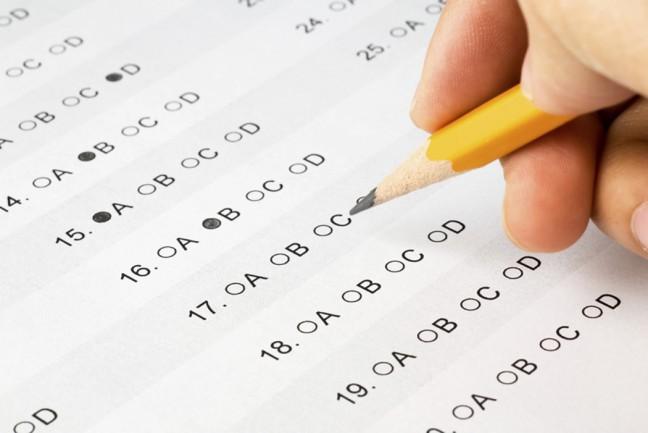State lawmakers are looking to address the proportion of University of Wisconsin System students who take remedial courses, but questions of whether that legislation is needed remain.
The state Assembly on Tuesday passed a bill that would order the UW System Board of Regents to require all Wisconsin students taking a UW System placement test in English or mathematics to disclose their high school. The bill is waiting for approval from the state Senate.
The bill would then mandate the regents to submit the names of high schools whose students placed into remedial courses to the Legislature.
Proponents of the bill have said it might help determine why certain Wisconsin high schools are graduating underperforming students.
But James Wollack, director of UW-Madison’s Office of Testing and Evaluation Services, said problems with remedial courses might not exist.
“We need to be evaluating our remediation programs as we evaluate our general education programs, but I’m actually not starting with the assumption that we have a problem,” Wollack said. “I would hope this isn’t something being used in a punitive way.”
He said compared to national levels of students taking remedial coursework, UW System fares quite well.
Wollack said UW System elects to use its own tests in determining which students take remedial courses because the ACT and SAT are not sufficiently comprehensive and are administered during a student’s junior year. He said this prevents universities from seeing the latest evaluation of a student’s preparedness.
According to a 2013 UW System report on remedial education, 21 percent of all UW System students took remedial courses in either English or mathematics, in contrast to the two-decade low in 2000, when just fewer than 15 percent of students took remedial courses.
Proportions of students taking remedial coursework vary widely between campuses. At UW-Madison, only 0.8 percent of students enroll in remedial coursework, while at UW-Parkside, the highest in the system, 65.3 percent of their students enrolled in remedial coursework.
Wollack said a graphic in the report showing a decline in students taking remedial coursework followed by an uptick in recent years intrigued many state officials. However, he said standards qualifying students for remedial coursework vary by campus.
He said if one standard were set, one would actually see a recent decrease in the proportion of students in remedial courses.
“The system-level numbers are actually very encouraging,” he said. “The students that are taking remedial courses are actually going on and being successful undergraduates.”
Still, in 1982, when the proportion of students in remedial courses were similar to today’s numbers, university administrators felt obliged to better determine standards for incoming freshmen students.
While still a subject of controversy nationwide, Wollack said the Common Core standards, through their standardization of expectations for college and career readiness, might help reduce the amount of students in remedial courses. The 2013 report also stated the Common Core standards provide “a unified statement of specificity.”
While remedial coursework might pose a problem for the UW System, remedial courses at UW-Madison are virtually non-existent. The university does not offer English remediation, and only 147 students enrolled in math remediation.
However, this does not prevent borderline students from receiving help on campus, Wren Singer, director of undergraduate advising, said.
Singer said if a student is close to needing a refresher course in mathematics, the department will work with the individual to improve their placement test score so they do not face having to take a remedial course.




















